Today we are looking at the highest core count ~1L PC we could find, the Lenovo ThinkCentre M90q Tiny. This compact PC sports a 10 core/ 20 thread 35W TDP processor all while still maintaining a compact size and relatively low power consumption. In our review, we are going to see the key lessons learned with this unit which focus on value.
Project TinyMiniMicro Background
In Project TinyMiniMicro we are purchasing a large number of these devices from different sources. While a standard STH review is of a new product, these TMM nodes occasionally have specs that differ from what one would expect. In all of these pieces, we are going to talk about what makes the nodes unique. We are now well over 35 different nodes to increase diversity. We are testing these on a more circular economy/ extended lifecycle basis to see how they can be deployed after their initial use as corporate desktops. As always, we have a video version of this article.
We recommend opening this video in a YouTube tab/ app for a better viewing experience.
For our $763 (before tax), we received a node with an Intel Core i9-10900T, 4GB of memory, WiFi 6, and a 128GB NVMe SSD. We even got an embedded Windows 10 Pro license which would have cost us around $140 alone. Since this was a new unit, we received a 1-year onsite warranty from Lenovo at that price.
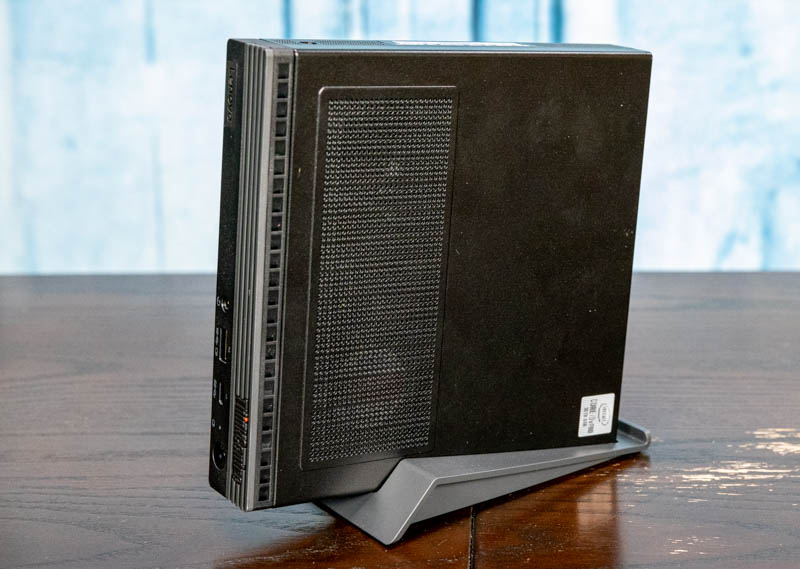
This is part of our new series where we are taking a look at some of the newest 10th generation ~1L PCs on the market. With our series, we understand that there is always going to be a tension. Older units are less expensive, but unlike buying an old hammer, we get significantly more capabilities and features in new versions. So we wanted to update Project TinyMiniMicro to see if newer units justify the price premium over older ones.
We are just going to quickly note here that we previously reviewed other Lenovo “M90” products, specifically the M90n Nano IoT and standard M90n Nano models as part of this series. Those “Nano” models offer more compact packaging but with major trade-offs in performance.
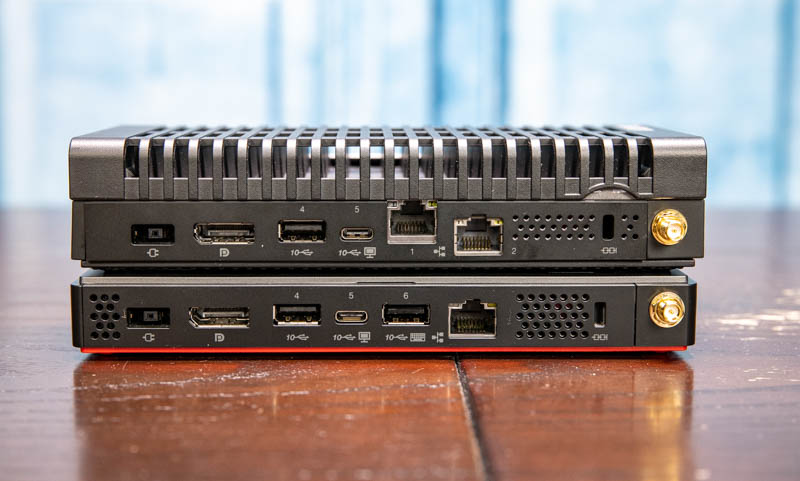
In this generation, we already reviewed the Lenovo ThinkCentre M75q Gen2 Tiny, and have the M80q as well as the HP Elite Desk 800 G6 (35W and 65W) as well as the Dell OptiPlex 7080 Micro already tested and pieces being prepared for publishing. There is a lot more coming.
We are going to go into a quick hardware overview, then into the key specs. We are then going to talk a bit about performance and power consumption before getting to our lessons learned from these units and our final words.
Lenovo ThinkCentre M90q Tiny Hardware Overview
The Lenovo ThinkCentre M90q Tiny is around 1L in size and uses the updated front design that we first saw with the Lenovo ThinkCentre M75q Gen2 Tiny.
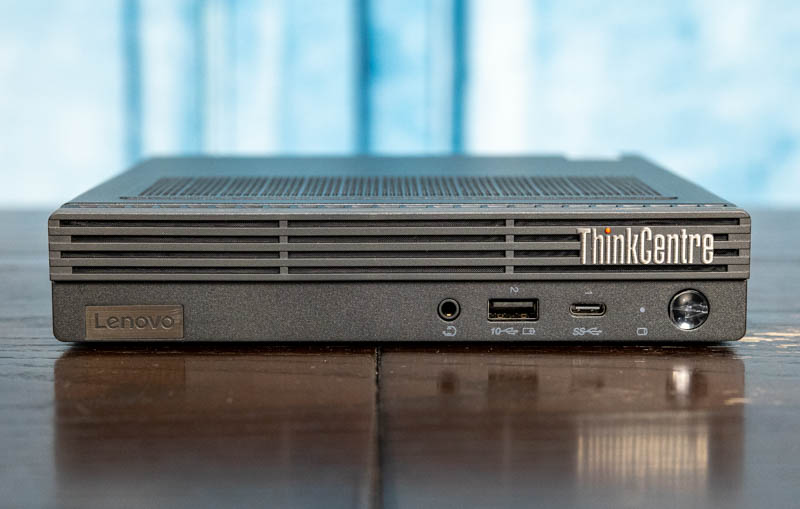
Aside from the power button, we get a headset port on the front of the system. We also get a USB 3.2 Gen2 Type-A port and a USB 3.2 Gen1 Type-C port on the front. Older units typically only had Type-A, but we wish both could be Gen2 ports.
Something you may have noticed that is different about this unit is that in photos the ThinkCentre “grill” looks a bit deeper than normal. There is a reason for that. We have the “Dust Shield for Tiny” option on this unit. Here is the dust shield off:
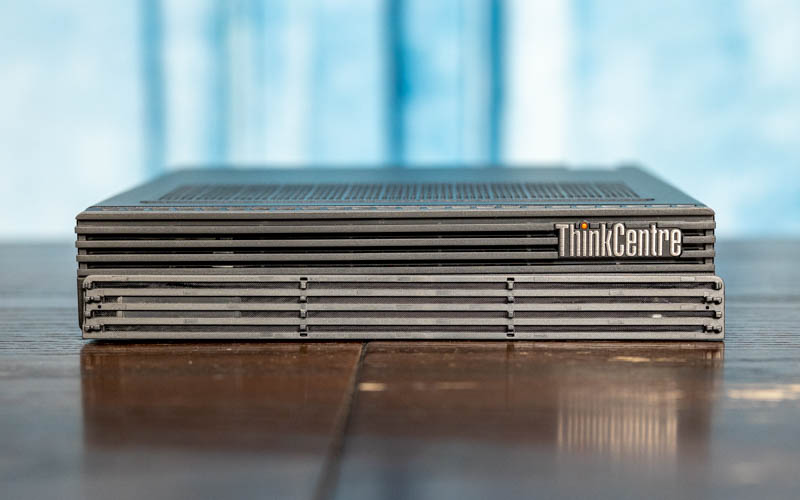
The option adds a small dust filter that can be easily removed and cleaned. At $100 this is not something we would recommend to our users, but we spent under $15 (discounts obscure this a bit.) If you deploy these in a dusty environment, it may make sense to get a little bit more protection. It adds negligibly to the size of the chassis.
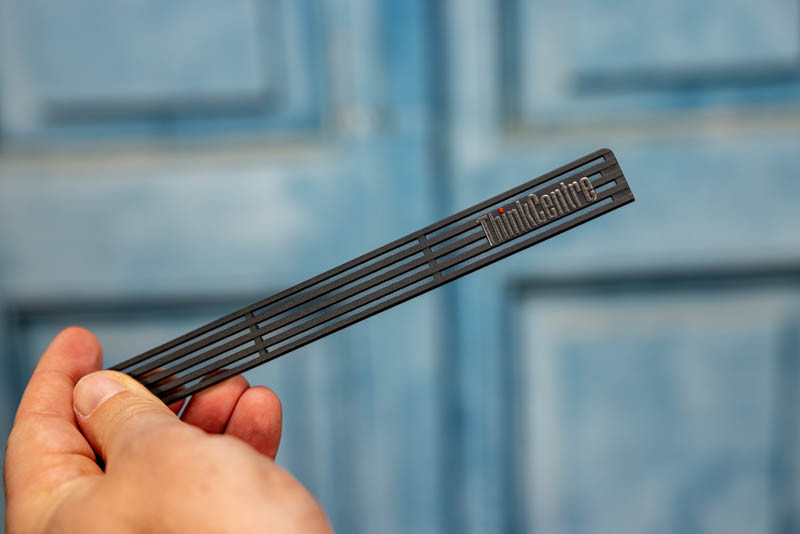
On the rear of the unit, we get a fairly standard port configuration. There are both DisplayPort and HDMI output options standard. We get two USB 3.2 Gen2 and two Gen1 Type-A ports for four total. Lenovo has an optional slot that one can configure as blank, or get various serial or display outputs. We ordered the optional USB Type-C port here. We did not get to test this, but the documentation we saw said this can offer a third output using a DisplayPort dongle if one wants. We just like having more USB Type-C ports.
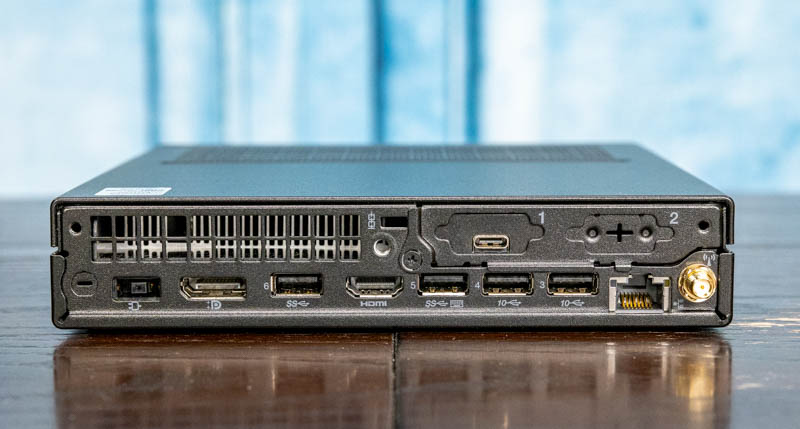
Networking is provided by a RJ45 connector. This is an Intel i219-LM NIC which is important. This configuration is valid for Intel vPro so we need to use this NIC. Frankly, given we are seeing on the Intel NUC 11 Pro Review Tiger Canyon NUC11TNKi5 and other systems 2.5GbE, this does feel a bit old even as the current generation since we are in the middle of an update to 2.5GbE in the desktop industry. We also just reviewed a lower-cost TRENDnet TEG-S380 8-port 2.5GbE switch so the 2.5GbE ecosystem is picking up. Still, Lenovo offers a 4x 1GbE Intel i350 card for the optional slot that some of our readers may be interested in.
One item we wanted to note is just how many vents there are on this system. On both of the non-I/O sides (seen in the video) we have small vents. Atop the chassis, we have vents, even in this 35W unit. We will get to the piece on the left of this photo later in this review.
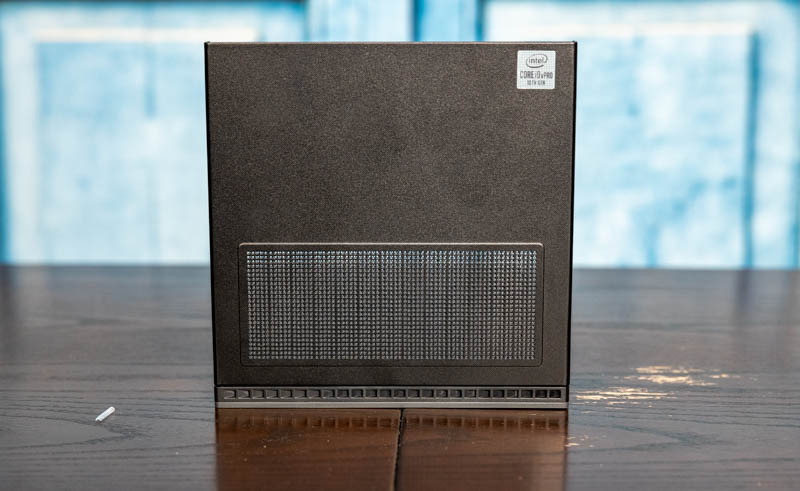
There is also a vent on the bottom side near the NVMe SSDs.
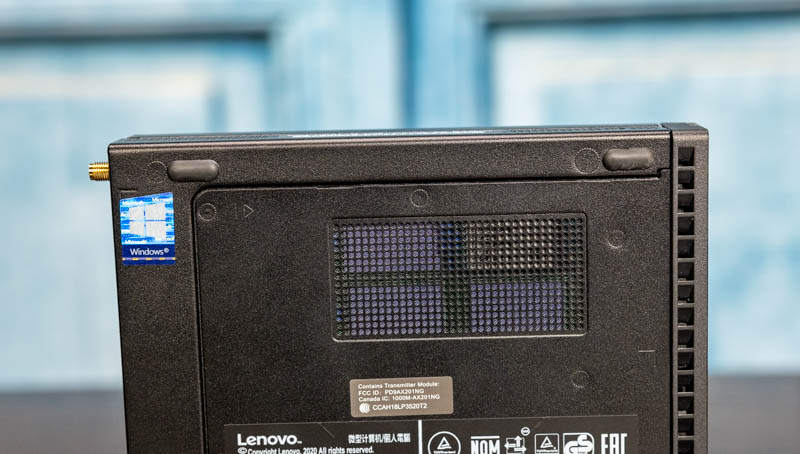
This may not seem like a big deal, but for those TinyMiniMicro folks building clusters, this greatly increases the complexity of airflow from simple front to rear designs. We looked and the M75q Gen2 Tiny and M80q Gen2 Tiny both have the side vents, but not necessarily the same level of top/ bottom vents as we see here.
Since this got longer than we were expecting, we are going to move the internal overview to its own section next.

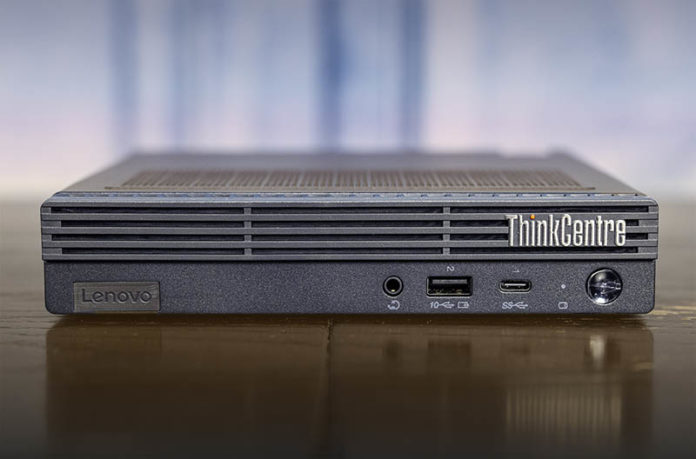
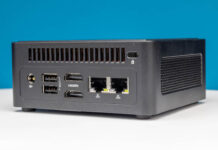
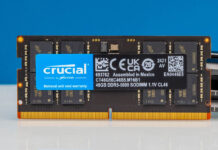
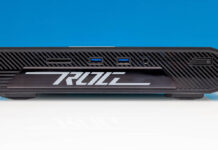
Great review – I’ve been loving these TMM reviews as I found the Prodesk 600/800 G3 units useful for home office or HTPC machines before prices went crazy due to COVID.
I think I can solve your Oumuamua mystery – it looks like the protective cover for the tiny RF connectors that push down onto the AX201 module. Anyway, love your site & have been reading for quite a few years now.
Where can I find the riser/Intel i350 option? It does not seem to show up in the configuration module, it seems.
The riser/Intel i350 option is not available in EMEA because “the product manager decided it wasn’t required.” This was also that person’s decision for the previous generation Tinys. It is available, as far as I know, in all other regions.
Note Patrick that it’s probably important to point out that this is the only model in this Tiny generation which supports a riser card and PCIe slot, the M70q and M80q do not.
I take it back. Literally over the weekend the listing on Lenovo UK has been updated and it now looks like a PCIe slot is available on the M90q Gen 2.
[premature submission] … whereas it was not before, and it looked like the M90q was going to be the last Tiny with a PCIe slot. I’m relieved!
Still worth making the point that the M90q and M90q Gen 2 (when you review it) are the only models with PCIe slots.
I bought a m90q for myself some weeks ago. It shall become my new audio workstation. For in- and outputs I want to connect an old M-Audio Project Mix interface with a firewire 400 port. When ordered the computer I thought it would be easy to install a firewire pci-e card. But no chance if you do not have the original Lenovo riser card, and this card is not available. I checked many sources here in europe and off course also Lenovo’s spare part partner IPC-computer in germany. Does anybody know where to get a pci riser card no. 5C50W00876. Any info is highly appreciated.
Hi Patrick, i already have an m90q with core i5 10500T, and i wish to upgrade to i5 11500, is this possible, i check the chipset and the chipset support the 11th gen, but i m not sure, i hope you can help me